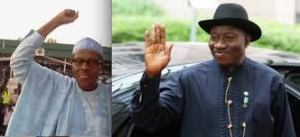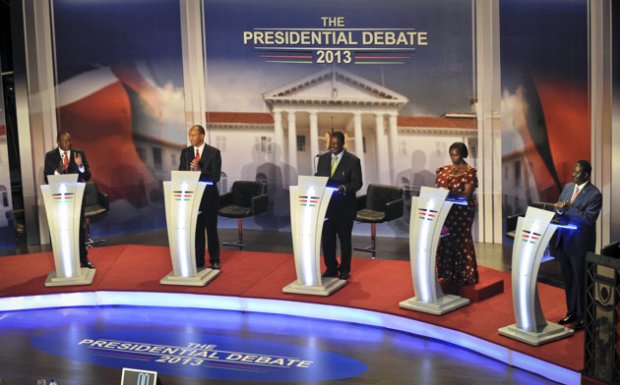Dr. Nkosazana Dlamini-Zuma ascended to the leadership of the African Union Commission Chair (AUC) amidst much controversy, not least the polarisation that ensued between Southern Africa and Central Africa on the one hand and the West and East Africa on the other. She prevailed after a bruising battle with the then incumbent Jean Ping. Dr. Zuma became the first Southern African and woman to head the African Union Commission since the inception of the African Union in 2002. She also became the first national of Africa’s big-five countries to lead the continental body much against the standing tradition to leave the post to smaller countries as a means of balance of power since the Organisation of African Unity days.
The messy power struggles that preceded her ascent to power and the reality of an institution fossilised in binary politics of language and crude regionalism were always going to be her bane. As though that was not enough, Dr. Zuma had to contend with a bureaucracy that had for years mastered the art of self-interest, dodgy deal-making, corruption, outright cronyism and unreceptiveness to fresh ideas and thinking. The administrative apparatus that Nkosazana Dlamini-Zuma inherited from her predecessors was shambolic, heavy on protocol rituals and very weak on delivery. The idea of a result based management or outcome based programming was rocket science. Everyone, including the systems prime beneficiaries, agreed that change was overdue.
Beyond the blurred ethical parameters, the African Union Commission was more an assemblage of silo departments run almost exclusively by donor interests with little coherence and common planning. Performance management was not only non-existent; it was viciously resisted as antithetical to the agenda of endless unproductive meetings.
She inherited a Commission which on paper had the right rhetoric, commitments, structures and personnel, but in reality one that was a mere paper lion. It lacked coherence and cohesion. On paper it had a department responsible for citizen affairs and diaspora and an ECOSOCC that barely met the aspirations of the bulk of organised civil society and social movements. Its erstwhile leadership in 2012/13 indicted it as corrupt and moribund. That notoriously inefficient platform for engagement between citizens and the African Union leadership was – candidly speaking – stillborn. It favoured those who were allied with its then leadership and hardly delivered anything of consequence to African Civil Society and Human Rights Defenders who were suffering from the onslaught of increasingly intolerant states and political elites.
Though there was a functional gender directorate that was regularly quoted and a youth division, these were woefully inadequate when it came to real transformative value beyond high-sounding declarations. African youth before the Zuma era were there to be seen and not heard. Even their department was headed by persons long past their youth.
Overall, the Commission was emasculated by an increasingly bullish Permanent Representative Council (PRC) and a band of Commissioners who were not politically accountable beyond their nation-states.
So has anything changed? Has Zuma been worth it?
Dr. Nkosazana Zuma-Dlamini has only been head of the AUC for less than 5 years. Any person with an understanding of performance management, let alone result based management, will tell you that for an institution as large and complex as the African Union Commission, it is almost impossible to make a dent on institutional culture within a period short of 6 years. Worse still for Dr. Zuma, she first had to establish a benchmark.
For those who care to remember, Alpha Konare had undertaken an institutional assessment of the African Union which – amongst others- had confirmed a dire dysfunction at the Commission. It is not clear why Jean Ping ignored it. One can only surmise that he was busy agreeing with Beijing on the construction of the new building. But the findings of the Adedeji report are instructive regarding four factors, namely:
- The true lack of power of the Chairperson of the African Union Commission viz-a-viz the PRC, Executive Council and Assembly;
- The false consciousness of an AU reform agenda driven by loosely coordinated and almost wholly funded RECs, Organs and Institutions; and
- The poor or lack of effective participation by African citizens
- Administrative, operational and political challenges implicit in the AU Structure and business model
These daunting challenges were well known and already on the table when Dr. Nkosazana Zuma-Dlamini took over a largely cash-strapped Commission polarised by her very election to its helm.
It is arguable that she has resolved some of the historical challenges and predictably either failed or worsened others. However, on the whole, she has demonstrated what leadership can do if it is impelled by a clear vision. Let me explain the basis of my favourable assessment of her short tenure. I have avoided comparing it to her most recent predecessors to steer clear of the sterile measurements based purely on what she did or did not do for certain regions or countries.
A fossilized bureaucracy
Though she never succeeded to change the internal locomotive and bureaucratic functioning of the Africa Union Commission, when history is written, Madam Zuma will surely go down as one of the most consequential Chairpersons of the AUC. Although she didn’t change the bureaucracy, she managed to get a Union-wide consensus on the need for change and greater alignment of all AU Organs, Institutions and Structures. There are now clear costed plans for the AUC restructuring that her successor can implement and to wit with a proper capacity needs assessment and development plan. In fairness, it was never within her power to change the job descriptions of Commissioners and her other subordinates without the consent of the PRC and Executive Council. The fact that the PRC acts as boss over the Commission is itself a splendid travesty. Within her own powers, she ensured the appointment of highly qualified individuals into various positions to help her drive her dreams of an effective Commission. Little wonder most of the Departments where these new crop of appointees are have taken up initiatives such as the Legal Associates Programme and AU Leadership Academy.
As the Adedeji report suggested, without a restructuring of the relationship between the Chairperson and the Commissioners, departmental level accountability and efficiency will remain lacking. What is suggested will be a possibility of the Member States electing the Chairperson and the Deputy Chairperson with the powers to appoint their own team. This way, the responsibility of delivering on set agenda becomes wholly owned by the Chairperson and his/her Deputy.
In addition to this is the antics of some Member States on staff matters within the Commission. The fact that some of them shamelessly defend, cover-up and in most cases threaten the Commission’s leadership against taking disciplinary measures on their citizens in the employ of the Commission found wanting in the exercise of their duties is disheartening. AU Commission cannot be the burial ground for misfits and people with questionable character or capacity.
Interestingly, the just concluded Summit has requested President Paul Kagame to head a panel on the restructuring of the AU Commission. With no less than President Kagame, a man of proven and enviable efficiency, effectiveness and excellence, there is no doubt that if the report is implemented (and does not go the way of the Obasanjo alternative financing model), this will signal a good omen for the Commission.
African citizenship and common African passport
For more than a century, efforts to achieve a borderless Africa failed. Jean Ping spoke about it tirelessly to no avail; President Alpha Oumar Konare also was unable to make any significant headway. Then on July 17, 2016 Zuma presented the new African Union passport to the AU Chairperson Idriss Derby of Chad and President Paul Kagame of Rwanda. For all true Pan-Africanists, this aspirational bold move, though not sufficient, established for the first time in the history of Africa that it is possible to achieve one of the fundamental goals for which the then OAU was created. It shows that with determination of commitments of African leaders, free movement of Africans within Africa is an achievable objective. This is a groundbreaking step for the continent. One that was at the essence of postcolonial OAU struggles but that has become difficult to achieve for many decades. The only regret is that –due largely to the nature of intergovernmental relations – the first passports are being issued to bureaucrats and political elites who already travel freely across Africa on their diplomatic passports. Why not a female cross-border trader or young woman scholar?
Nonetheless, this was a classic Zuma coup. It was an example of the many ways she tried to bulldoze her ideas and initiatives on a system designed to take its time to decide on any issue. What is most striking about this African passport is the intention by Zuma to force the hand of Member States on the need to open up their borders and foster a visa-free continent for its citizens. The symbolic action of issuing the passports to the Presidents without the completion and adoption of the Freedom of Movement Protocol will ensure that no matter what happens, reactionary forces cannot stop the protocol when it finally comes for adoption at the Summit in 2018.
Agenda 2063
Its most vicious critics argue that it is a subversive attempt to dilute a more transformative African development pathway articulated in the Lagos Plan of Action and African Alternative to Structural Adjustment Programme (AFSAP), but Agenda 2063 marks a clear definitive plan for Africa. It was Dr. Zuma’s leadership that persuaded Africa leaders, CSOs and other private sector actors, to rally behind a continental development agenda 2063. Never since the independence struggles of the late 1950s and 1960s had the continent rallied around a single but multi-faceted cause. Aimed at socio-economically and politically transforming the lives of the one billion citizens, shifting the focus from political independence to domestic growth, equality and infrastructural transformation of the continent. It is no mean feat that she managed to have a Capacity Needs Assessment and Capacity Development Plan and a ten-year Implementation Plan for Agenda 2063 done in less than 3 years.
One Africa, one voice
Unlike the weak negotiating position Africa endured during the development of the Millennium Development Goals, thanks to her vision, at the time of the development of the newly adopted Sustainable Development Goals, Africans had already galvanized themselves around a common position making their voices and opinion relevant at the negotiating table. The Common Africa Position (CAP 2015) strengthened Africa’s negotiating power and clarity within the broader global processes.
This model was also replicated for the World Humanitarian Summit in Turkey where Africa was the only region with a Common African Position on global humanitarian effectiveness. A major component of this position is the proposal to establish an African Humanitarian Agency aimed at facilitating operational humanitarian responses in the event of disasters on the continent. Currently, the Commission is coordinating the development of a Common African Position on Habitat III scheduled for October 2016 in Quito, Ecuador. This was a deliberate attempt at ensuring that the African Union speaks with one voice on continental and global issues.
AU financing
Under Dlamini-Zuma’s leadership, following President Obasanjo’s report, for the first time, the AU took a decision to overcome its financial challenges and to fund 100% Operations Budget, 75% Programme Budget and 25% Peace and Security budget. Last week in Kigali, we saw signs of progress on this agenda when for the very first time, the African Union summit finally adopted a resolution to institute a 0.2 percent levy on eligible imports, in order to address the funding challenges the African Union has faced since its inception. This is a result of concerted efforts even after Member States threw out the initial proposals from the Obasanjo Panel on Alternative Financing.
Through a consistent addition of the financing issue on the Summit agenda and the appointment of Donald Kaberuka, former head of the African Development Bank, the AU Commission Chair has shown an uncommon tenacity to get the issue resolved. The onus of implementation is now in the hands of whoever her successor is.
Another mechanism established during her tenure is the little known AU Foundation aimed at mobilizing private sector resources to support the work of the African Union Commission.
Ebola crisis
Dr. Dlamini-Zuma was not the first AUC Chairperson to lead in the context of humanitarian crises or epidemics (Evian Flu, HIV/AIDS, war, volcanic eruption in DRC, terrorism in the Horn and Sahel Region, etcetera). Many of her predecessors waxed lyrical and were rhetorical full of clichés describing but not resolving the problems that confronted them. Dr. Zuma’s leadership has been different in its activism and forthrightness. Confronted by one of the worst humanitarian and man-made crises the continent has ever faced in recent history, she swung into action in the face of divergent Member State reactions (some banning travels) and the challenge of coordinating efforts through intense lobbying. She convened and led an unprecedented fundraising drive on November 8, 2015 to support countries fight the catastrophe ushered by the Ebola under her leadership, and for the very first time, the private sector was mobilized to raise $32 million in one sitting; 855 volunteer health workers deployed to Sierra Leone, Liberia and Guinea via national structures and the ASEOWA mission. In fact, through the Africa Against Ebola Solidarity Trust, over $100 million additional funds were raised from the #AfricaAgainstEbola SMS Campaign. These funds are now being channeled into the Africa Center for Diseases Control (CDC).
Vowing to ensure that the continent is able to anticipate and respond to such occurrences in future, she provided the leadership for the operationalisation of the African Centre for Disease Control. The need for an African CDC was recognized at the African Union Special Summit on HIV and AIDS, TB, and Malaria in Abuja in July 2013. The concept has since moved through various stages of development, stakeholder review, and approval. The African Centre for Disease Control and Prevention (African CDC) will help African countries effectively monitor public health, respond to public health emergencies, address complex health challenges, and build needed capacity.
Ending impunity
Dr. Dlamini-Zuma was able to set up an unprecedented AU Commission of Inquiry, an all-African initiative led by President Obasanjo with a comprehensive report that informed the August 2015 peace deal and the decision to establish a Hybrid Court on South Sudan. The onus of implementation of this report is in the hands of the AU Member States, one of the grey areas in the real powers of the Commission in the face of all-powerful Member States.
Under her leadership, Egypt, Burkina Faso, Central African Republic were suspended over unconstitutional changes of government and alongside policy organs, led various interventions to ensure the return to constitutional order. The swift response of the AUC alongside its counterparts in ECOWAS and UNOWA on the eve of the resignation of former President Blaise Compaore, occasioned by the annual governance gathering – DGTrends – remains a highlight of her tenure.
Even the unfortunate Burundi issue was not because of her lack of engagement but that of the realities of state-centric geo-political dynamics of the East African region. It was on record that the Commission (represented by Commissioner for Political Affairs, Commissioner for Peace and Security and the Chairperson at different times) visited the country and met with various stakeholders more than a year before the controversial elections, prevailing on the authorities in Burundi to abide by the spirit of the Arusha Accord and their constitution.
Total independence of colonised African territories
Never afraid to take controversial positions, Madam Zuma supported the self-determination struggles of the people of Western Sahara and welcomed the application of Morocco to rejoin the AU. Though these may now seem normal, her decisions to embark on some of these controversial situations were historical at the time and the very first in most instances. Without doubt, her liberation credentials played a huge part in this as she ensured that she provided the needed attention to the plight of the Sahrawi people. On her behalf, the Commissioner for Political Affairs visited the Tindouf Camp twice in the space of three years to assure the people of the efforts of the African Union on addressing their situation.
AU long-term election observation
Appreciating the sovereignty of Member States and the mandate of the Commission, there are limitations to the powers of the AUC. Its role is largely advisory and supporting capacity needs of Member States. This power imbalance notwithstanding, the AUC established a long-term election observation framework to complement its electoral assistance mechanisms to Member States. This enabled it to oversee peaceful elections and transitions across the continent ranging from Kenya, Nigeria, Tanzania, Burkina Faso, Comoros, Central African Republic, and Benin save for challenging situations like Burundi and Guinea Bissau. While concerns have been raised by several quarters on the AU election observation methodology, the Commission is currently reviewing its strategies aimed at enhancing its efficiency.
Youth and women’s voice
No AUC Chairperson in modern history has brought the issues of youth and women empowerment to the forefront of continental discussion like Dr. Zuma. From declaring 2014 and 2015 as the Year of Women’s Rights to the declaration of 2017 as the Year of Investment in Youths, she has galvanized the continent around and forced heads of states to consider women and youth policy issues as fundamental to achieving the African transformation agenda.
On women’s issues, her greatest legacy will be the establishment of gender parity at the AUC level ensuring that there are 5 men and women each as Commissioners. Even in appointments of staff, she ensured the appointment of highly qualified women into several positions within the Commission. She also appointed a Special Envoy on Women, Peace and Security to shine the spotlight on the challenges faced by women in conflict situations on the continent. This is coupled with an institutional reform of the Gender Directorate, ensuring the appointment of a competent director to further drive home efforts on women empowerment on the continent.
While her exploits on youth development were mainly hindered by structural challenges within the Commission, her commitment shone bright in the implementation of initiatives such as the African Youth Volunteer Corps, the Annual Youth DGtrends and the institutionalization of regular interactions with young people through social media. In fact, the social media engagement by the Commission in her tenure has ensured that the Commission interacts with a lot more citizens beyond the continental pre-conferences often preceding many AU events which were always limited to INGOs, their sponsored partners and professional lobby groups. Though necessary, these groups did not always represent the broadest spectrum of African political, social and economic opinion.
While youth issues most definitely go beyond the current efforts, it is envisaged that over the coming months, Dr. Dlamini-Zuma may be able to leave a footprint on youth development issues by ensuring the operationalization of the Youth Fund and an appointment of a African Union Youth Envoy to set the agenda for youth empowerment and development going forward. This, coupled with the elevation of the Youth Division into a directorate under the office of the Chairperson, hopefully in the next administration will further foster coordination on youth issues on the continent.
Conclusion
Overall, depending on what side of the table one sits, every situation has its triumphs and travails. Madam Zuma has her own faults and failures, but she is definitely not a disaster as some pundits would have us believe. A lot of these facts are verifiable from people who’ve keenly followed happenings at the AUC and the AU. Dr. Zuma’s decisions have not been perfect but her stature in the history of the African Union and the African Union Commission is forever unquestionable. As the first woman to have occupied the position, she has given a good account of herself and justified the need for equal participation and leadership of women. The many initiatives she has catalyzed, established and implemented will remain fitting souvenirs of her tenure.
Posterity, they say, is the best judgement of actions. Let posterity be the judge.
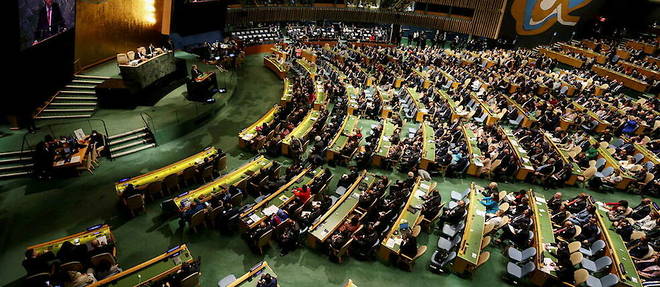
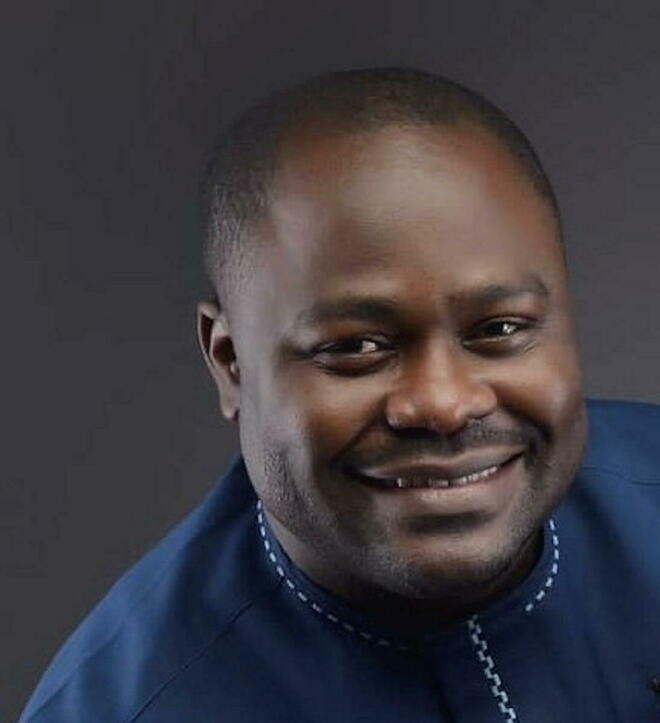


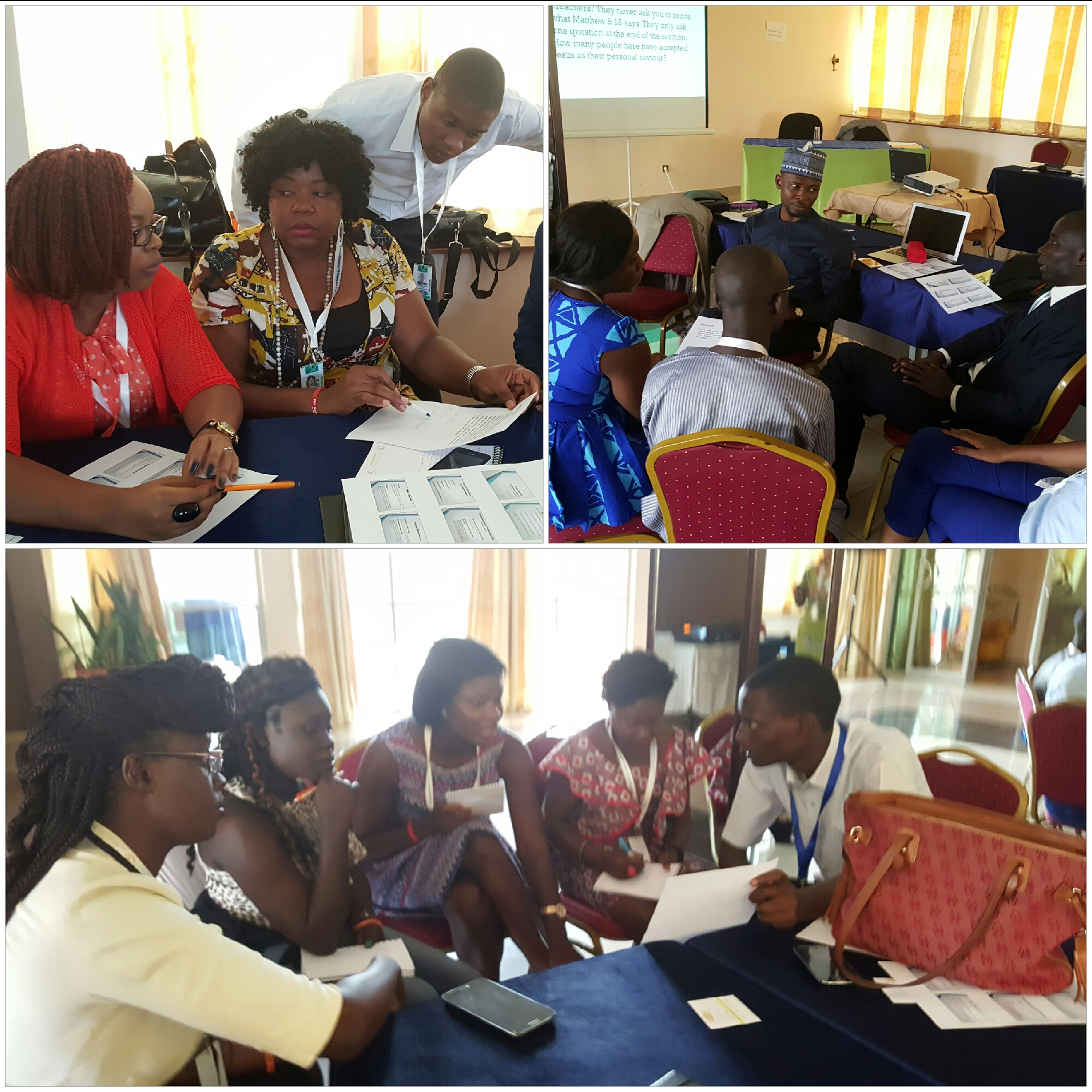 The only thing that holds a nation together is not its brilliant policies, constitutions, institutions, and sound economy but rather the values and principles upon which all these are founded. The problem of our political culture in Africa lies in our readiness to abandon principle and values Under the pretext of pragmatism. Clearly, real politick requires pragmatism, sophistication and not dogmatism. But pragmatism should never be equated with naked opportunism.
The only thing that holds a nation together is not its brilliant policies, constitutions, institutions, and sound economy but rather the values and principles upon which all these are founded. The problem of our political culture in Africa lies in our readiness to abandon principle and values Under the pretext of pragmatism. Clearly, real politick requires pragmatism, sophistication and not dogmatism. But pragmatism should never be equated with naked opportunism.
